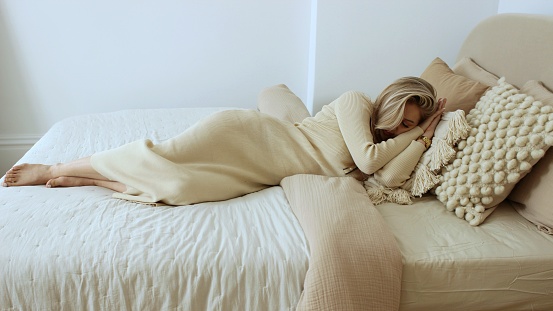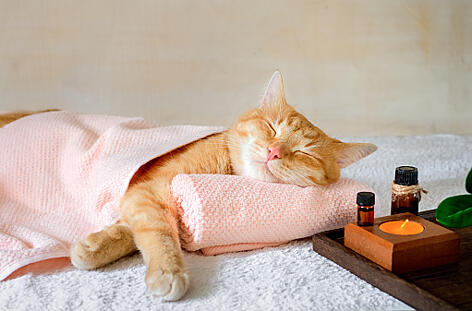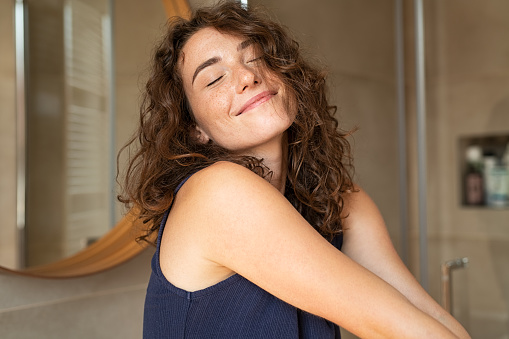In an era brimming with sensations and new stimuli, it's easy to feel overwhelmed, and our days can seem somewhat hectic. Amidst the hustle and obligations, and while staring at an endless To-Do list, we often overlook the importance of rest. Whenever we face demanding periods with an accumulating pile of duties, the first thing we tend to cut back on is self-care; we reduce sleep, and then usually eliminate activities such as coffee dates with a friend or long dinners with family or friends from our diary. Yet, relaxation, allowing our body and mind to unwind, is essential. We're continuously learning to connect with our body's needs and to give it what it truly requires.

Identify what form of relaxation suits your body best
Each of us is different, so different activities energize us, and it's vital to know yourself and your needs. By regularly providing our body with what best relaxes it, the results are immediately noticeable. Who wouldn't want to feel better, full of strength, refreshed, and mentally well? Sufficient rest and the physical and mental well-being of our body are also reflected in the appearance of our skin, much more significantly than we might admit.
Start by recognizing what form of rest best suits our organism. Stop looking at what works for your friend, partner, or colleagues at work, and think about when you truly feel rested and wake up genuinely well-rested. Is the length of sleep important to you? Do you need to incorporate more movement during the day? Do you sleep better after a walk in the fresh air? Quality relaxation helps the body regenerate, strengthens the immune system, and increases overall resilience to stress.
Just as rest strengthens our health, it directly affects the condition of our skin. Regenerative processes occur in the body during sleep, which are key to maintaining youthful and healthy skin. Lack of sleep can lead to the formation of wrinkles, under-eye circles, pigmentation spots, and changes in skin tones. On the contrary, sufficient rest increases collagen production, improves skin texture, aids in its regeneration, and promotes a healthy glow.

How to make time for quality rest?
- Establish a regular routine
In the popular book "Why We Sleep" by author Matthew Walker, we learn that not only the duration of sleep matters but also its regularity. According to doctors, ideally, we should go to bed and wake up at the same time. Regularity helps our body kick-start the proper functioning of organs and balance our hormonal levels. For women, hormonal balance plays an even more significant role than for men.
- Sleep in a dark, cooler, and comfortable environment
Our bedroom should be a cozy place where we feel comfortable. It is suggested to choose softer color shades, not overheat the room, and opt for a warmer duvet, ideally made of anti-allergenic materials. Investing in a comfortable mattress and pillows also pays off.
- Limit the use of electronics before bedtime
Screen light can disrupt our ability to fall asleep. It is recommended to turn off electronics at least an hour before bedtime. It is generally advised not to get agitated before sleep and not to solve important life issues. Instead, create an evening routine that calms you down and prepares your body for sleep, which relates to the next point.
- Include relaxing activities in your evening routine
Activities suitable before bedtime include breathing exercises, gentle stretching, listening to soothing music, meditation, or grabbing a book and calming the body with reading. This relaxation time can also be used to apply a nourishing hydrating mask like Love Mode, which beautifully nourishes your skin, and its herbal scent induces a harmonizing mood. These breathing activities calm our body and mind before sleep so that it can properly regenerate during the night, allowing us to wake up full of strength and in a good mood the next day.
- Avoid caffeine and heavy meals in the late hours
For all processes to correctly occur in the body during sleep and for all sleep phases, especially deep sleep, to alternate, we should also consider what we eat before going to bed. Everyone has a different tolerance for what foods or caffeine levels our body can process. It is stated that the last cup of coffee should be had 6 hours before bedtime. Caffeine is not only in coffee but also in green tea, though in significantly smaller amounts, yet it is not suitable in the evening. Choose rather chamomile or lemon balm tea, which conversely calms you down.
Create a space in your apartment where the body and mind can harmoniously transition into a state of rest. Mental well-being and quality rest will work their magic on your skin too. Let's remember this the next time we want to cut back on time for ourselves and our sleep in favor of work or other people. Put yourself and the proper functioning of your body first, and everything else will seem a bit easier.






